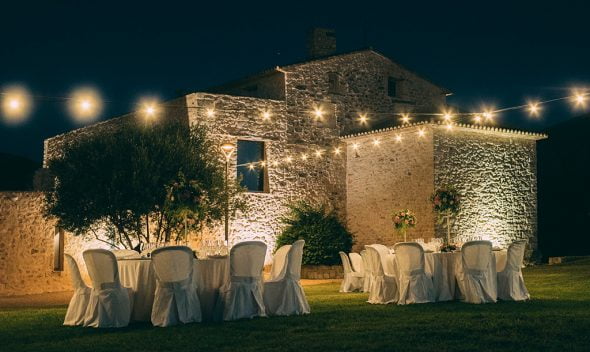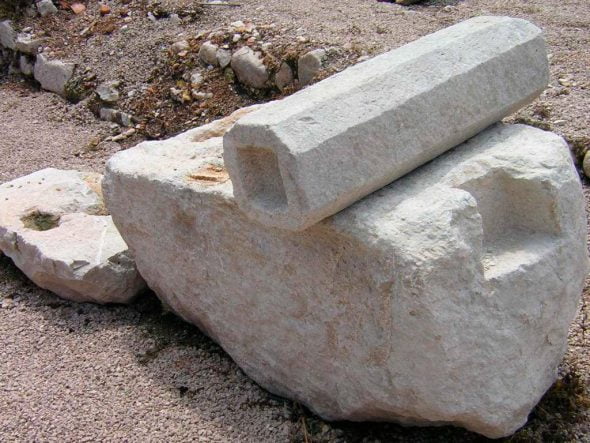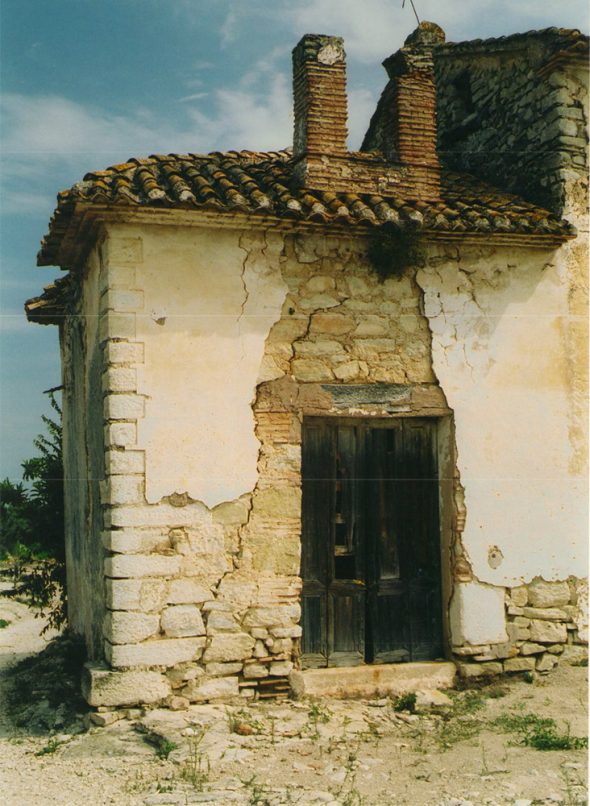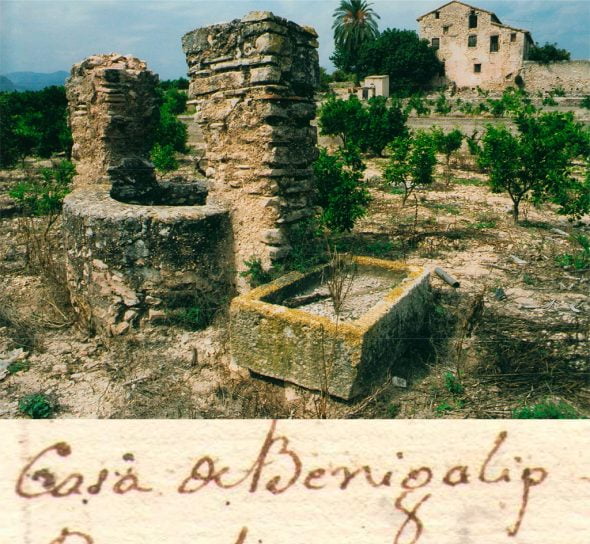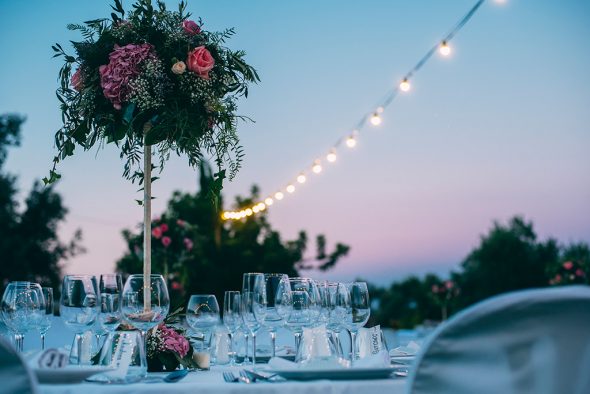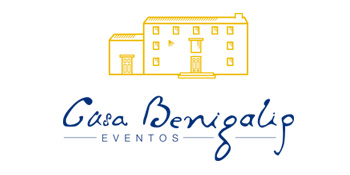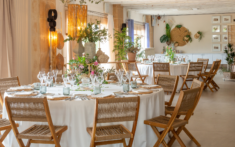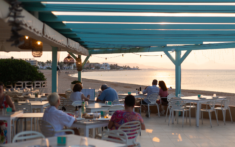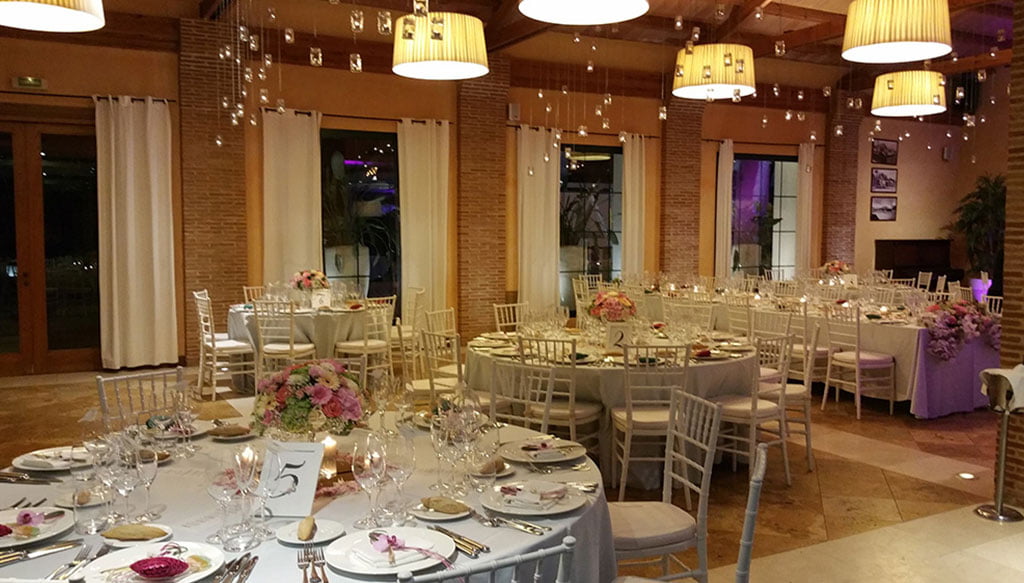In the town of Pego, a farmhouse is situated in a rural area, where agricultural space is combined with a typical Valencian building. This ancient and impressive house is Benigalip, or as it is called in the past: Benigani or Benigànim.
They are various stages that characterize and customize this house, now making it a charming space and history, where you can celebrate your special events.
Roman villa Benigani
Since 1980, thanks to the work of Josep Antoni Gisbert prospecting, we know that this place existed already at the time of the Roman Empire, being a Roman villa of considerable extent, as evidenced by the remains of ceramic material.
Ancient Roman villas centralizing facilities, technology, labor and investment, and is also a basis for a new system of holding territory. In short, the villas were economic cells of the Roman world.
The farmstead Benigalip
The Roman villa is abandoned in the late third century. C. and the following records place it to the XI-XII century, during the time hispanomusulmana.
The farmstead hispanomusulmana Benigalip this time is a small village, a few houses, which certainly evokes a world populated by a group of gentile type or članic, having a male common ancestor (Ghalib) place.
Recent surveys have given to light two findings that can be identified with this time. On the one hand, a burial in one of the margins of a plot adjoining the house; and on the other hand, the discovery of an oil lamp peak hispanomusulmán with painted decoration appeared to the chapel adjoining the house.
The late Middle Ages, the configuration of an agricultural space
Possibly after the conquest of the XIII century farmstead ceased to exist Benigalip going to become a game over the municipality of Pego, since there are no news habitat here.
Benigalip is at this point in history a rural area of the term, in which we find around 12 properties of average proportions.
In the sixteenth century it seems that the plot, which were two, buys Bernat Puig. During this purchase you may be held one of the first buildings, a farmhouse that occupied the site or possibly the house torn down the old farmhouse.
Benigalip Puig belongs to this family until the first half of the eighteenth century. The last owner must be Joan Baptista Puig, a bourgeois who was accumulating money to trade in the snow.
Benigalip inheritance, the new owners since the eighteenth century
It appears already linked in the book of the eighteenth century Peita this property to Francisco Pascual Cots, entitled Benigalip house (free 154) and Heredad Benigalip (free 2550). By this time the new work is cited house Benigalip, which reflects the sundial of the main facade, in 1737.
In the mid-nineteenth century it begins to disappear already use the place name of Benigani Benigalip by perhaps phonetically or have Castilianized.
In the late nineteenth century and early twentieth century the property was registered in the name of Silverio Esteve Palomar, the teacher Esteve.
It is not known exactly when, but must have been at this time that a chapel attached to the main facade of the house, for family worship on Sundays was built. During the twentieth century, about four families living there, watching over the land, corrals and the mill.
Every Sunday mass was celebrated in the little chapel, which had a main door and another from within the same house. Around this time, the fifties of the last century, one of the grandsons of the famous teacher Esteve, Carlos Sentí Steve.
In the patch of low of the house there is a tank collecting the water when it rained and served for human consumption. Inside the yard or yard of the house there is also a well for the supply of animals and people.
The farmhouse was almost self-sufficient. On the top floor living owners of the house, with kitchen and private bathroom.
Nowadays
Today, reconstruction and consolidation of Benigani farmhouse, is the best way for future conservation. Many years of history could not finish in scattered debris, should finish planting himself again as an austere but emblematic inheritance of the term of Pego.
Benigalip House is a great place to enjoy your big event property. Wrap yourself in the history of this particular farmhouse that hides wonderful secrets from different eras.
You will not find a better place to surprise your guests. Find out on the house phone Benigalip, 966 42 21 60.
Source Documents: Joan Miquel Almela
Municipal Archive of Pego December 2006

